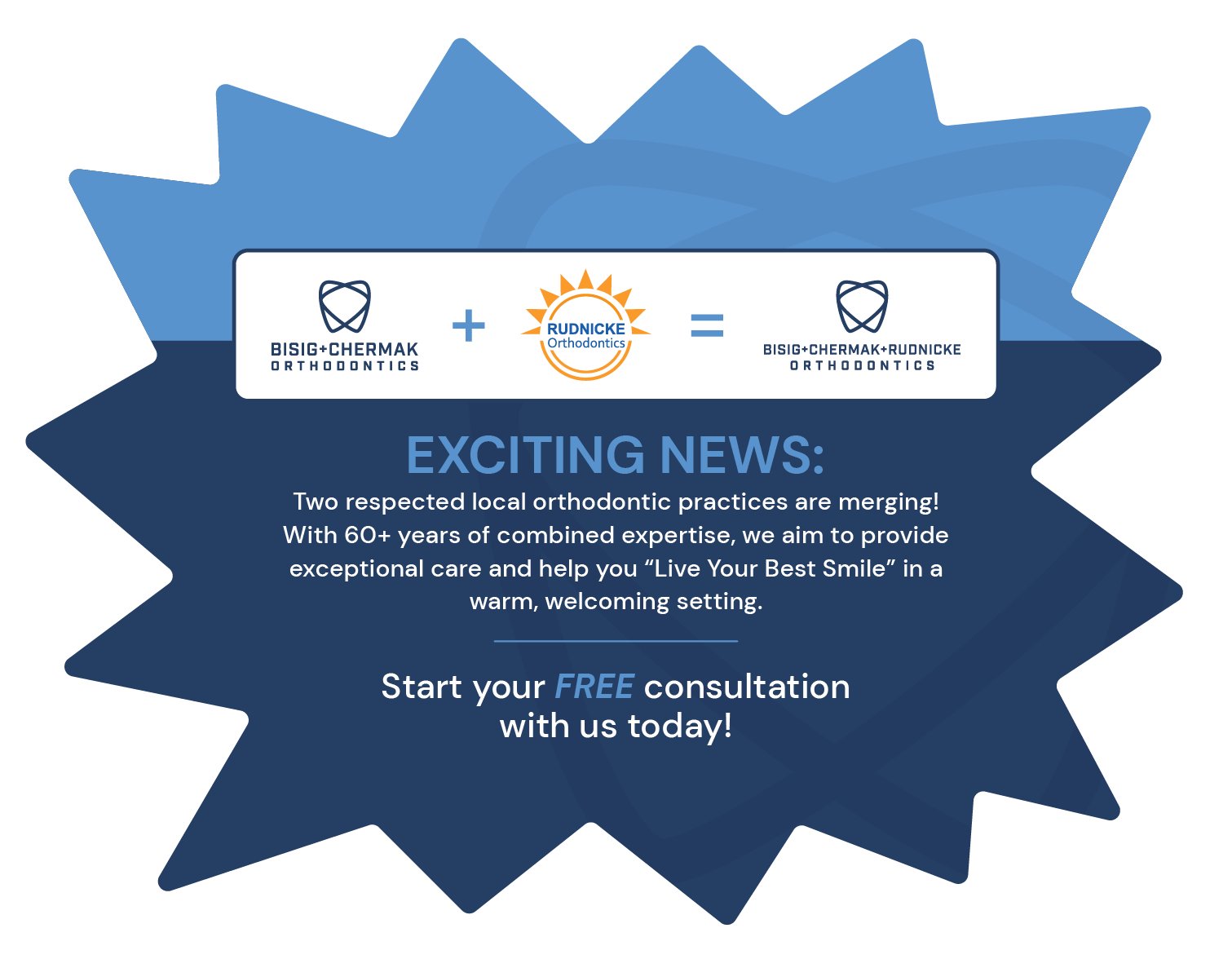Get to Know Your Orthodontists in Winston-Salem
At Bisig + Chermak + Rudnicke Orthodontics in Winston-Salem, our expert orthodontists provide personalized care that enhances your smile and overall well-being. We're committed to using the latest technology to address your unique orthodontic needs, ensuring a healthier, more confident you.
Your Local Board-Certified Orthodontist
Meet Dr. Bisig
Dr. Bisig and his wife, Courtney, have been connected to Winston-Salem for over a decade, visiting family in the area multiple times a year. Being close to family is what makes this new chapter so exciting for them.
Dr. Bisig is excited to join the Bisig & Chermak family and to continue providing the gold standard of service that has become synonymous with our brand. He is thrilled to be part of your Winston-Salem orthodontist team.
- Board-certified by the American Board of Orthodontics
- Diamond+ Invisalign provider

From 2001-Today
Meet Dr. Chermak
Dr. Chermak has been practicing orthodontics and crafting smiles in Winston-Salem, Clemmons, and King since 2001. He met his wife, Marci, in Raleigh, NC. They have been married for 20 years and have two boys, Stephen and Pierce. The family has a passion for traveling all over the world. The Chermaks have enjoyed living in Winston-Salem and being a part of their community.
For Dr. Chermak, the biggest reward of being an orthodontist is knowing that he’s helped change someone’s life by creating a beautiful smile that the patient can be proud of.

Perfecting Smiles in Winston-Salem
Orthodontists, like the team at Bisig + Chermak + Rudnicke Orthodontics in Winston-Salem, specialize in aligning teeth and jaws, a field that requires additional years of specialized training beyond dental school. Unlike general dentists, orthodontists focus on diagnosing, preventing, and treating dental and facial irregularities. Their expertise is essential for effective teeth straightening treatments, such as braces and Invisalign, ensuring not just an aesthetically pleasing smile but also a functionally healthier bite.

The Comprehensive Benefits of Orthodontic Treatment
Orthodontic treatment at Bisig + Chermak + Rudnicke Orthodontics in Winston-Salem offers far more than just straight teeth. It's a comprehensive approach to oral health that brings a multitude of benefits. Properly aligned teeth are easier to maintain and less prone to dental problems, leading to improved overall oral health. Beyond the physical advantages, orthodontic treatment can have a profound impact on mental well-being and self-esteem. A straight, confident smile can enhance social interactions and open doors in professional settings, making orthodontic care a valuable investment in both personal and professional life.
Physical Benefits
Orthodontic treatment leads to improved oral health. Straight teeth are easier to clean, reducing the risk of cavities and gum disease. Proper alignment also prevents abnormal wear on tooth enamel and can alleviate issues like jaw pain and chewing difficulties.
Mental and Personal Benefits
A straight smile significantly boosts self-confidence and self-esteem. Patients often report feeling more positive about their appearance after orthodontic treatment, impacting personal and social interactions positively.
Social Benefits
A confident smile enhances social engagement. People with straight teeth are often perceived as more friendly and approachable, improving interactions in both personal and professional settings.
Professional Benefits
In the professional realm, a great smile can be a significant asset. It contributes to a polished, confident appearance, which can be advantageous in career development and professional relationships.
Transform Your Smile with Expert Care at Bisig + Chermak + Rudnicke Orthodontics
At Bisig + Chermak + Rudnicke Orthodontics in Winston-Salem, we are committed to transforming smiles and lives. Whether you're considering braces or Invisalign, our team is ready to provide you with personalized care and expert guidance. Schedule your free consultation today and take the first step towards a healthier, more confident smile.

